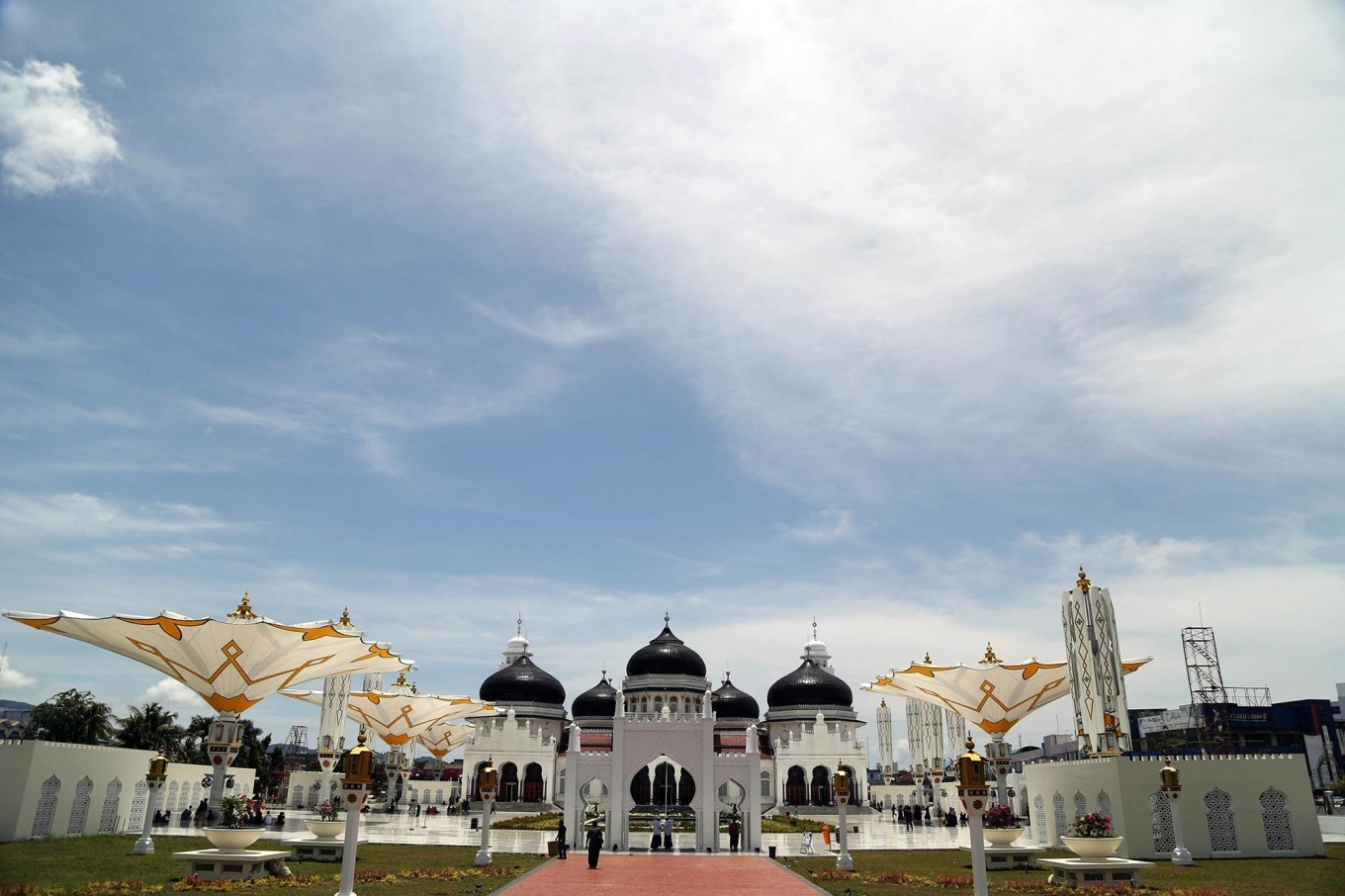News
The four islands dispute: An infringement of Aceh’s dignity
Tenggara Strategics June 23, 2025 Masjid Raya Baiturrahman in Banda Aceh, Aceh. (JP/P.J.LEO)
Masjid Raya Baiturrahman in Banda Aceh, Aceh. (JP/P.J.LEO)
President Prabowo Subianto's much-anticipated intervention has seemingly eased tensions over the disputed Panjang, Lipan, Mangkir Gadang, and Mangkir Ketek islands, which had caused a feud between Aceh and neighboring North Sumatra.
While abroad on a state visit to Russia, Prabowo decided the four islands would be returned to Aceh. However, the initial intent to transfer sovereignty raises concerns about unnecessary provocation and central government overreach.
The conflict stemmed from an April ministerial decree by the Home Ministry, transferring ownership of the four islands, geographically closer to North Sumatra, from Aceh Singkil regency in Aceh to Central Tapanuli regency in North Sumatra. This mirrored three previous decrees in 2012, 2017, and 2022, which were all met with strong opposition from Aceh.
Aceh government officials and Governor Muzakir “Mualem” Manaf claim the islands possess significant untapped oil and gas reserves, comparable to the Andaman gas field, alleging this as the true motive behind the transfer attempts. “Do you know why [the decision came to be]? It’s because of the energy resources, the gas deposits, they’re as big as those in the Andaman [gas field]. That’s the issue,” said Muzakir.
However, State Secretary Prasetyo Hadi denied these claims, stating checks with the Energy and Mineral Resources Ministry found no research indicating energy resources in the area.
Aceh's history of decades-long rebellion against the Indonesian government should have served as a warning against provoking the province, whose memory of insurgency is still recent, 20 years since the 2005 Helsinki peace agreement that ended the bloody conflict. This accord between Aceh rebels and Indonesia promised lasting peace, allowing Aceh's peaceful coexistence within the Unitary Republic of Indonesia and the dissolution of the Free Aceh Movement (GAM).
As the commander-in-chief of GAM and once an "enemy of the state" back then, Muzakir was at the forefront of this conflict, even clashing with President Prabowo during his military days. Yet, the peace agreement has proven effective, granting Aceh greater autonomy while upholding national unity. Muzakir himself reconciled with Prabowo, spending nearly a decade with the President's Gerindra Party (2013-2022) before becoming governor. He also staunchly supported Prabowo's presidential campaign and is now considered a loyalist by many.
Similarly, North Sumatra Governor Bobby Nasution pledged loyalty to Gerindra after his expulsion from the Indonesian Democratic Party of Struggle (PDI-P) in order to contest the gubernatorial race in November last year. The PDI-P ousted Bobby, son-in-law of former president Joko Widodo, for supporting the Prabowo-Gibran Rakabuming Raka ticket in the Feb. 14, 2024 election against the party’s wishes.
Former vice president Jusuf Kalla reiterated Aceh's inherent right to the islands, citing the peace agreement he helped orchestrate. He emphasized the issue as "a matter of pride" and "trust with the central government" for Aceh. Prior to the islands' return, Suadi Sulaiman, deputy head of the ruling Aceh Party, echoed this sentiment of dignity, urging Home Affairs Minister Tito Karnavian to respect Aceh's July 1, 1956 borders.
Interestingly, Tito did not use these borders as the basis for the resolution. Instead, he cited a 1992 ministerial decree between the then-Aceh and North Sumatra governors, which agreed on a 1978 topography map by the Army that clearly placed the four islands under Aceh’s jurisdiction.
Indonesia's archipelagic structure, with over 17,000 islands, makes mapping complex. A similar ongoing dispute between North and South Sulawesi over Kakabia Island, under the same April Home Ministry decree, reflects this challenge. For over a decade, these provinces have engaged in a bureaucratic feud, each with its own interpretation of ministerial decrees.
Border disputes between provinces are inevitable. Therefore, it falls upon the central government and the Home Ministry to ensure that the pragmatism of geographical proximity is considered alongside historical claims. This approach would prevent the central government from provoking regions that might retaliate.
What we've heard
Several government sources suggest the potential change in ownership of four islands off North Sumatra is economically driven, specifically by the area's oil and gas potential.

